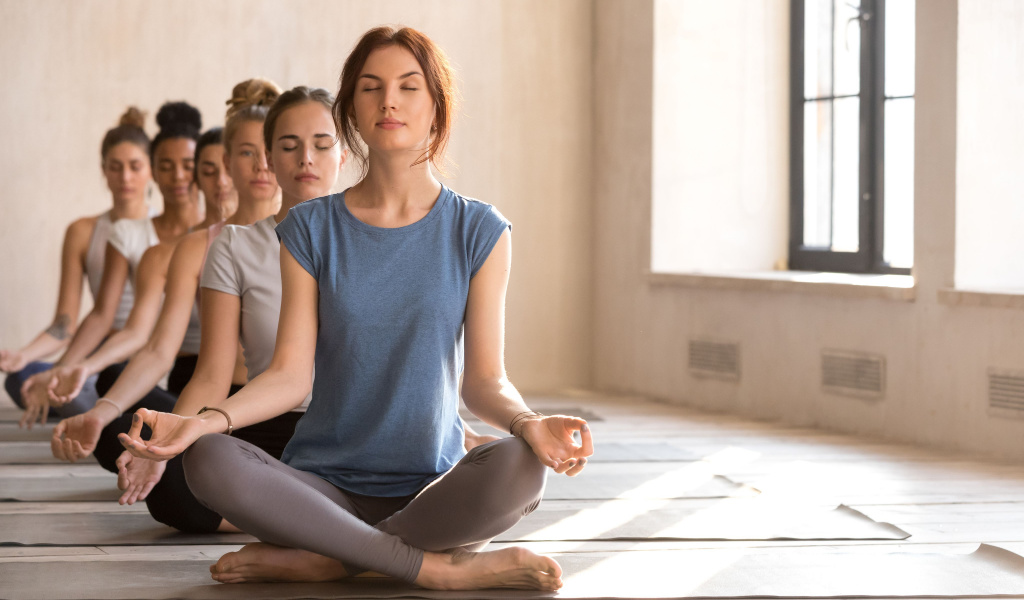Stress can be defined as a change that causes emotional, physical, or psychological strain.
At times, when you feel you don’t have the proper resources to manage the demands placed upon you, you are subjected to stress psychologically. But this demand varies from one individual to another because what can be bearable or motivating for one person can feel stressful for others.

By nature, the physical health and mental health of a person are intrinsically linked. Your body’s defense activates a stress response when you feel pressured, threatened, or disturbed by something which makes you physically, mentally, and emotionally uncomfortable.
At such a time, you might observe your heart palpitate and your blood level increase. High-stress levels can lead to loss of sleep, chronic fatigue, digestive issues, decreased sex drive, headaches, binge eating, or even not eating at all. Stress can also lead to a number of health ailments. On the physical side, it can lead to heart disease, obesity, and diabetes. As for mental health, you could end up with anxiety, depression, or a whole host of other problems.
That is why finding a reliable outlet to relieve stress, such as exercise is important. Exercise can be a simple self-care tool that can help you manage stress. As reported by the Healthier Nation Index, nearly 20% of those who exercised for at least 15 minutes a week observed their mental health was better when compared to 10.9% of those who didn’t exercise at all. Here are some ways in which exercise helps in the discharging of stress:
Lowers Your Heart Rate
When you are overwhelmed, the natural stress response in your body can cause a rise in heart rate. Exercise strengthens your heart and improves the circulation of blood in your body. Notably, stretching and relaxation exercises such as yoga can bestow instant relief as they encourage you to control your breathing through long and deep breaths, which in turn, lowers your heart rate.
Aerobic exercises improve your cardiovascular conditioning and decrease the risk of heart disease. When the body is physically active, the heart can pump more blood through the body and continue working at optimal efficiency with little strain. This will likely help it to stay healthy longer. Regular exercise also helps keep arteries and other blood vessels flexible, keeping your blood flowing and your pressure in check. As a result, exercising may just be the easiest and most effective way to lower your heart rate!
Reduces Your Blood Pressure
There have been numerous studies and research that suggest that physical activity can help lower and manage blood pressure. No one likes to sweat, but the discomfort is worth it, as your heart becomes stronger when you perspire regularly. A stronger heart will ensure that blood is pumped more effectively through your body, placing less pressure on your arteries and lowering your blood pressure.
Regulates Sleep
Tossing and turning at night? Stress can make the situation even more challenging to switch off. If your nervous system is constantly in a state of arousal, it is a clear sign that you are bounded by non-stop anxiety-inducing thoughts. Tiredness and worrying about being tired only make things worse.
There is much evidence to prove that the quality of sleep can be improved by moderate exercise. Therefore, it would be a good idea to make a habit of exercising for at least 30 minutes a day. The ideal time to exercise would be about five hours before bed so that your body can use any excess calories and help you doze off. 30-minute sessions of moderate exercise can help ward off worry and prompt your body’s natural sleep-wake rhythms, making it a lot easier to relax.
Controls Appetite
Tension tends to make your stomach feel like it’s all in knots, and who among us hasn’t faced those infamous butterflies in our tummies? The gut and the brain are strongly connected, according to a recent study, and stomach discomfort is caused when you feel anxious or nervous because of the hormones and chemicals that get released into your digestive tract.
The good news is that exercise can improve gut health in just six weeks. Researchers claim that people who exercise have healthier digestive systems, but exercise must be regular and habitual to maintain a healthy population of gut bacteria.

Exercise And Stress Relief – Why It Works
Exercise increases your sense of well-being and overall health, which puts more liveliness in your step every day. At the same time exercise also has some direct stress-busting benefits.
Physical activity may help maximize the production of your brain’s feel-good neurotransmitters called endorphins. Since this task is usually referred to as a runner’s high, any aerobic activity, such as a stimulating game of tennis or a nature hike can contribute to this same feeling.
Working out has so much potential to enhance our well-being. Even low-intensity aerobic exercises such as jogging, walking, or yoga for 30 to 35 minutes, 3 to 5 days a week over 10 to 12 weeks have been shown to deliver the most powerful stress relief.
Exercise improves your mood by increasing self-confidence, helps you relax, and lowers the risk of anxiety and depression. In one study, it was found that instantaneous stress-busting effects can be achieved by even a single exercise session. Another study found that a regime of 10 to 30 minutes of exercise is sufficient for an overall improvement in mood.
Final words
“The human body isn’t designed to sit all day,” says Jeff Migdow, M.D., an integrative physician in Lenox, Mass. “Just getting up and moving around is a powerful way to reduce stress”, he says. “It allows our muscles to move, encourages blood to flow, and helps us feel more like ourselves.”
Don’t think of exercise as just one more thing on your to-do list, do whatever you love. Find an activity you enjoy — whether it’s an active tennis match, a mid-morning swim, or a meditative yoga session. Meander down to a local park and back — and make it part of your daily routine. If you truly do not have time to exercise regularly, make small changes in your everyday habits that will help you stay physically active – such as taking the stairs instead of the elevator or cycling to work instead of driving. Any form of physical activity can help you unwind and become an important part of your approach to battle stress.



